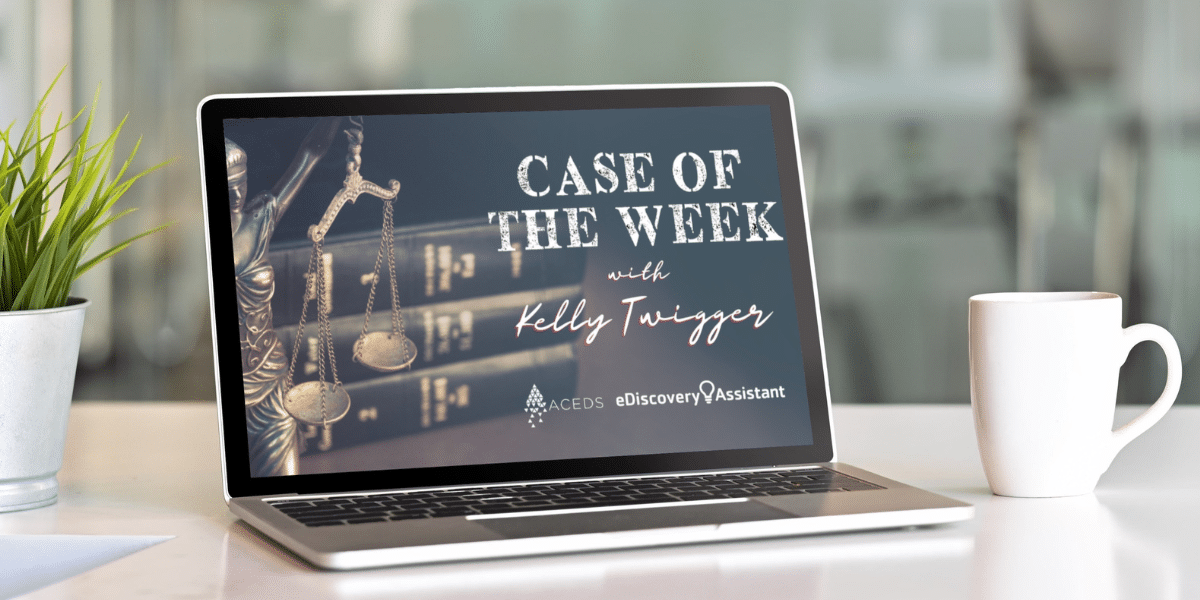In a recent ruling in Lopez v. Apple, Inc., Apple faced significant sanctions for failing to suspend its automated data deletion policy for Siri recordings after the initiation of litigation. This case is a reminder of the importance of understanding your data sources and conducting proactive data preservation in today’s digital age.
The Case and Its Implications
In Lopez, plaintiffs alleged that Apple violated their privacy rights by activating Siri without consent and sharing recordings with third parties. Apple’s failure to suspend its automated data deletion processes for captured Siri data led to the destruction of vast amounts of potentially relevant evidence.
The Court found that Apple had a duty to preserve the data, and their failure to do so prejudiced the plaintiffs. This led to sanctions, including precluding Apple from using the absence of the deleted data in their defense and an adverse jury instruction regarding intent.
Key Takeaways for Litigation Professionals
- Proactive Data Preservation: As soon as litigation is reasonably anticipated, take immediate steps to preserve potentially relevant data, including suspending automatic deletion policies.
- Understand Your Client’s Data: Develop a deep understanding of your client’s data infrastructure, retention policies, and the potential for automated deletion.
- Communicate with the Court: Don’t hesitate to seek guidance from the Court if there are uncertainties regarding the scope or nature of data preservation or if the costs of preserving that data are disproportionate to the needs of the case..
- Misrepresentations to the Court: Be accurate and truthful in your representations to the Court. Misleading the Court can lead to further sanctions and damage to credibility.
A Turning Point in eDiscovery?
The Lopez decision highlights the growing importance of eDiscovery and data preservation in modern litigation. With the ever-increasing volume of electronically stored information (ESI), it’s crucial for legal professionals to be well-versed in the intricacies of data preservation and the potential consequences of failing to do so.
This case could serve as a turning point, prompting organizations to re-evaluate their data retention policies and litigation hold procedures. It underscores the need for clear communication between outside counsel, in-house legal teams and IT departments to ensure the preservation of critical evidence.
Avoiding Costly Mistakes
To avoid the costly mistakes made by Apple, legal professionals should proactively address data preservation issues at the outset of litigation. This involves:
- Identifying key custodians and data sources: Determine who has access to relevant data and where it is stored. For company wide data sources, identifying a liaison for each data source is critical.
- Implementing litigation holds: Issue clear and comprehensive litigation hold notices to all relevant parties, including any liaisons for implicated company wide data sources..
- Monitoring compliance: Regularly check in with custodians to ensure they understand their obligations and are complying with the litigation hold.
- Seeking guidance from experts: If necessary, consult with eDiscovery specialists to develop a comprehensive data preservation plan.
By taking these steps, litigation professionals can safeguard their client’s interests and avoid the potentially crippling consequences of spoliation sanctions. The Lopez v. Apple, Inc. decision serves as a stark reminder that in today’s digital age, effective data preservation is not just a best practice, but a legal imperative.


